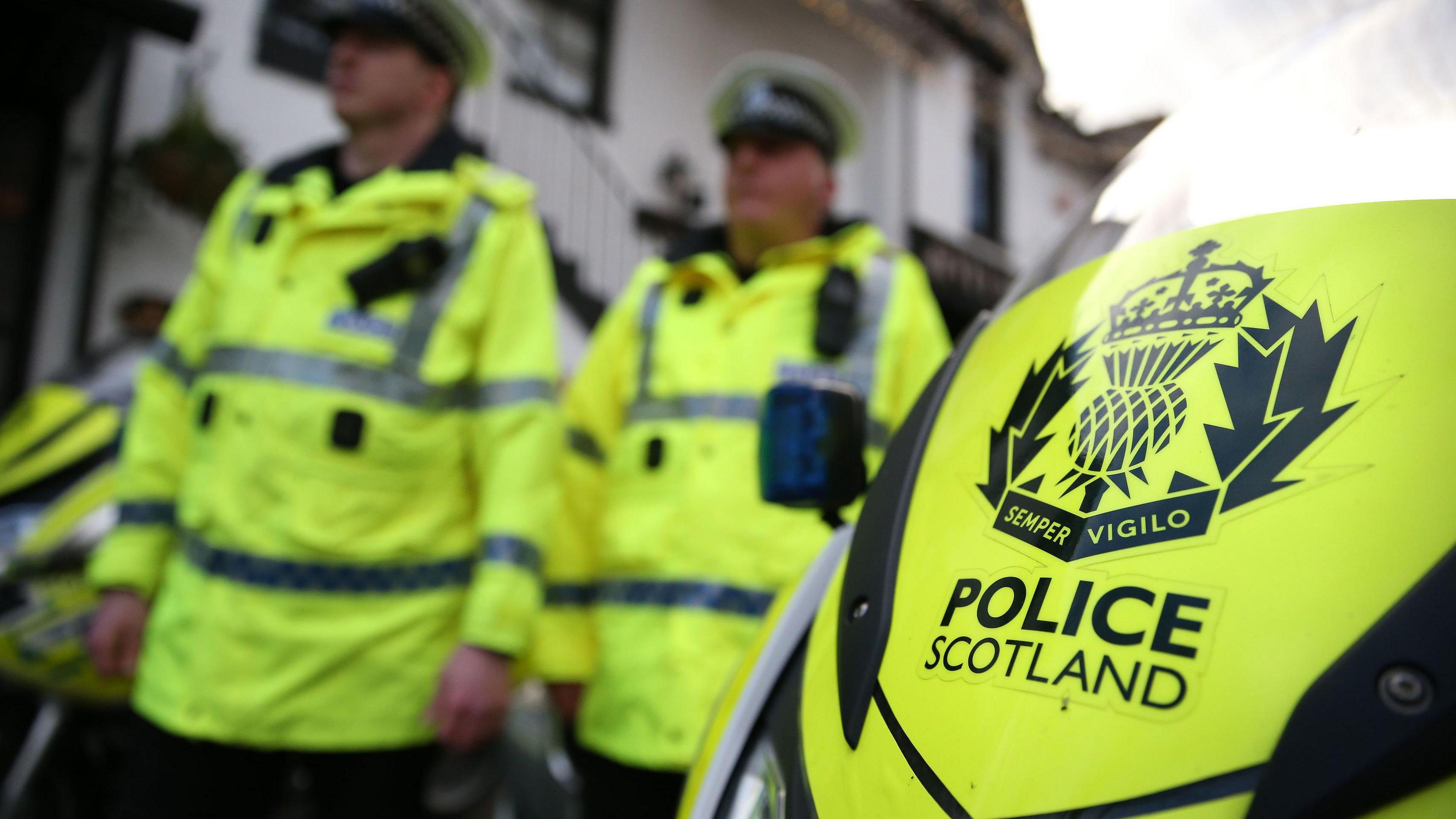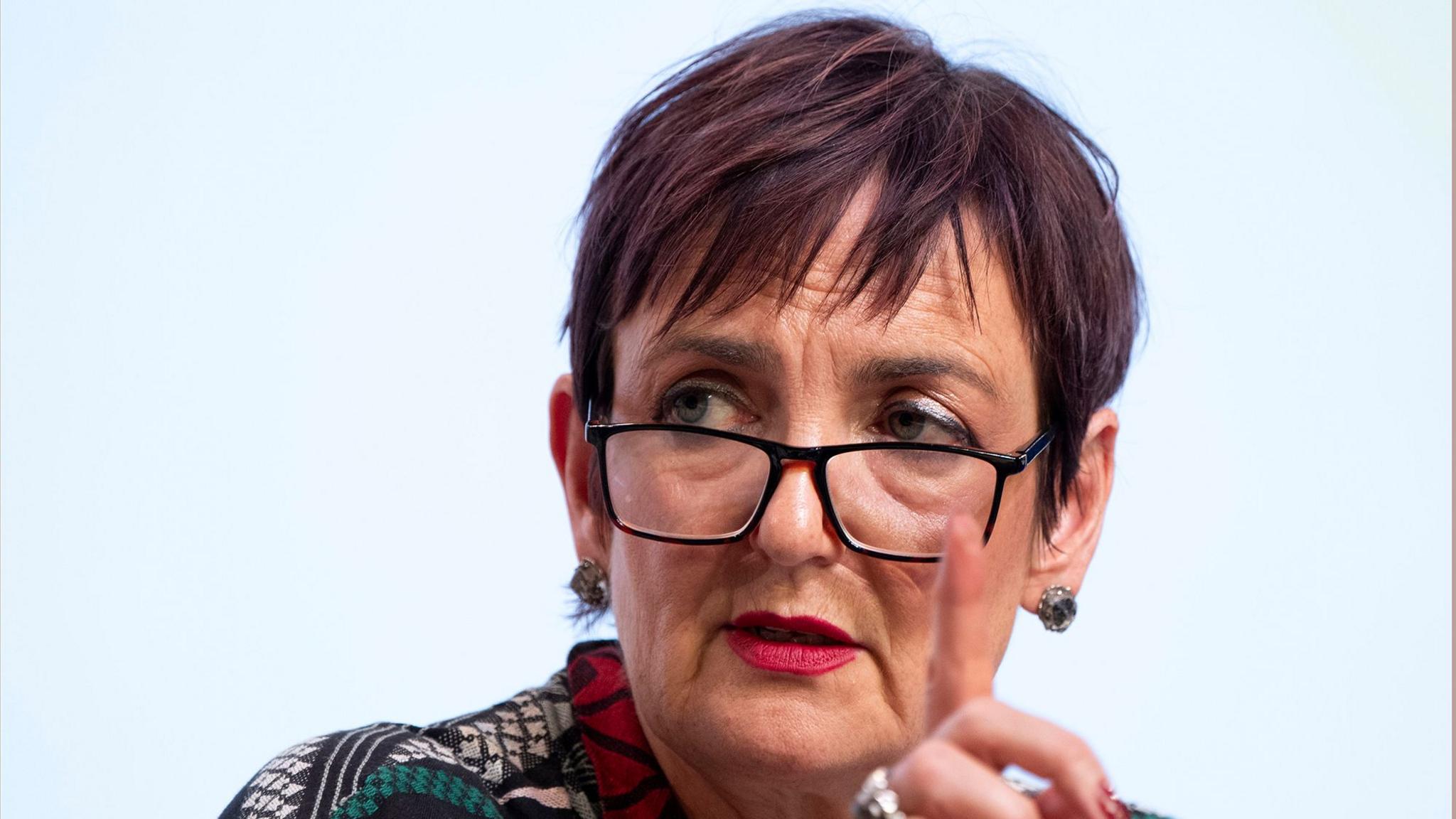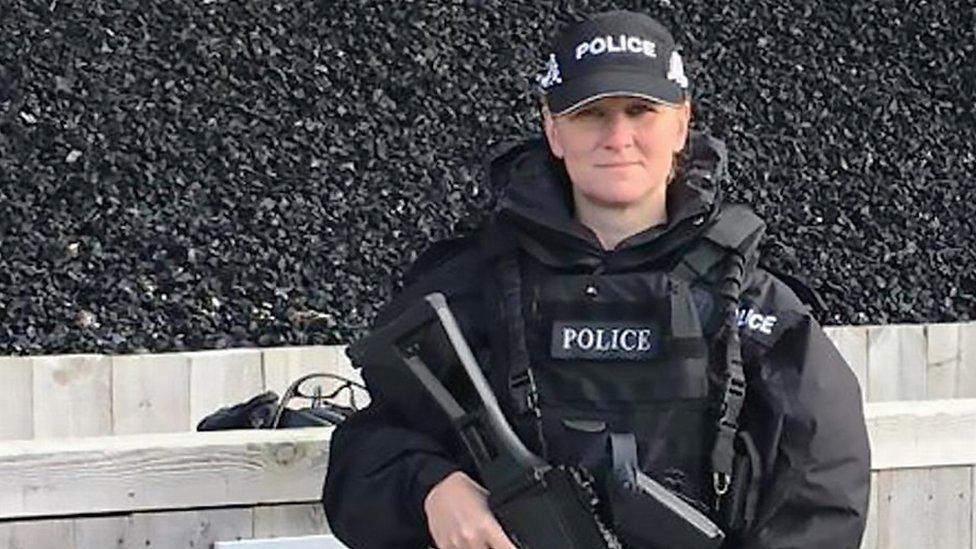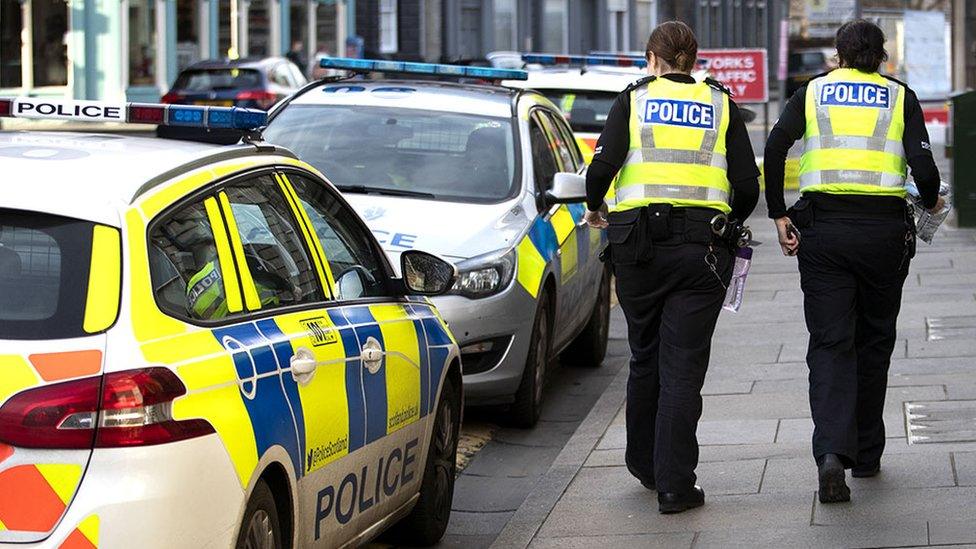Police Scotland accused of failing to act on 'whistleblowing' complaints

- Published
Police Scotland is facing claims that it failed to take appropriate action after a female detective raised “serious allegations” about fellow officers.
A solicitor for the detective inspector has written to the justice secretary and four MSPs on the justice committee, saying her client alleges that Police Scotland failed to treat her concerns as whistleblowing.
She is taking legal action against Police Scotland on the grounds of sex discrimination and unfair treatment after whistleblowing.
Police Scotland said there was an ongoing employment tribunal and it would not be appropriate to comment.
In 2021 the detective inspector was moved to a base in the central belt working in both the Child Abuse Investigation Unit and Rape Unit.
BBC Scotland News is aware of the contents of the letter to the justice secretary and MSPs, which claims the officer openly complained about a culture of misogyny and sexism.
The letter says this resulted in anonymous complaints against her to Police Scotland’s professional standards department (PSD).
During the PSD investigation into her, it is alleged she made “very serious allegations”.
The letter says she told PSD officers she was "scared" of a senior detective and he "made inappropriate comments about her appearance".
The same officer was later arrested and charged in connection with domestic abuse allegations that were unrelated to the female detective inspector.
Police Scotland said criminal complaints against officers and staff were fully and professionally investigated and reported to the Crown Office and Procurator Fiscal Service.
The Crown Office said after careful consideration of the facts and circumstances of the case, including the available admissible evidence, there should be no proceedings against the officer at this time.
He remains suspended and Police Scotland says the matter will now be considered under its misconduct regulations.

The detective's solicitor has written to Justice Secretary Angela Constance
In the letter to the justice secretary and MSPs, the female detective's solicitor said that Police Scotland’s "failure to properly categorise" her client’s concerns camouflaged the true extent of whistleblowing within the force.
In a statement to BBC Scotland News, Margaret Gribbon, of Bridge Employment Solicitors, said: “Last year, my client provided information to Police Scotland’s professional standards department which included allegations of criminality and other unlawful conduct against fellow officers.
"Police Scotland has confirmed that it will not take any action in response to my client’s gravely serious disclosures, which inexplicably were not investigated by them as whistleblowing concerns."
She said her client had instructed her to make the same disclosures to the justice secretary and other MSPs on the justice committee in their capacities as "prescribed persons" under whistleblowing legislation.
A prescribed person is an individual or organisation that a worker may approach outside their workplace to report suspected or known wrongdoing.
'Broken complaints system'
Scottish Conservative justice spokesman Russell Findlay, one of the MSPs who received the letter, said: "It is concerning to hear of another female whistleblower stating that Police Scotland has failed to properly investigate her serious allegations.
"This case yet again confirms the need to fix Scotland’s broken police complaints system which fails many good officers and the public."
BBC Scotland News understands that no officers are suspended in relation to the complaints raised by the female detective inspector.
A Police Scotland spokeswoman said: "There is an ongoing employment tribunal and it would not be appropriate for us to comment further at this time."
A Scottish government spokeswoman said it would be inappropriate to comment on individual cases, particularly in circumstances where it was not the employer.
She added: "We know that ensuring public trust in the police service is vital, which is why proposals in the Police (Ethics, Conduct and Scrutiny) Scotland Bill will further improve the police complaints and police misconduct systems."
Related topics
- Published4 May 2023

- Published23 May 2023
